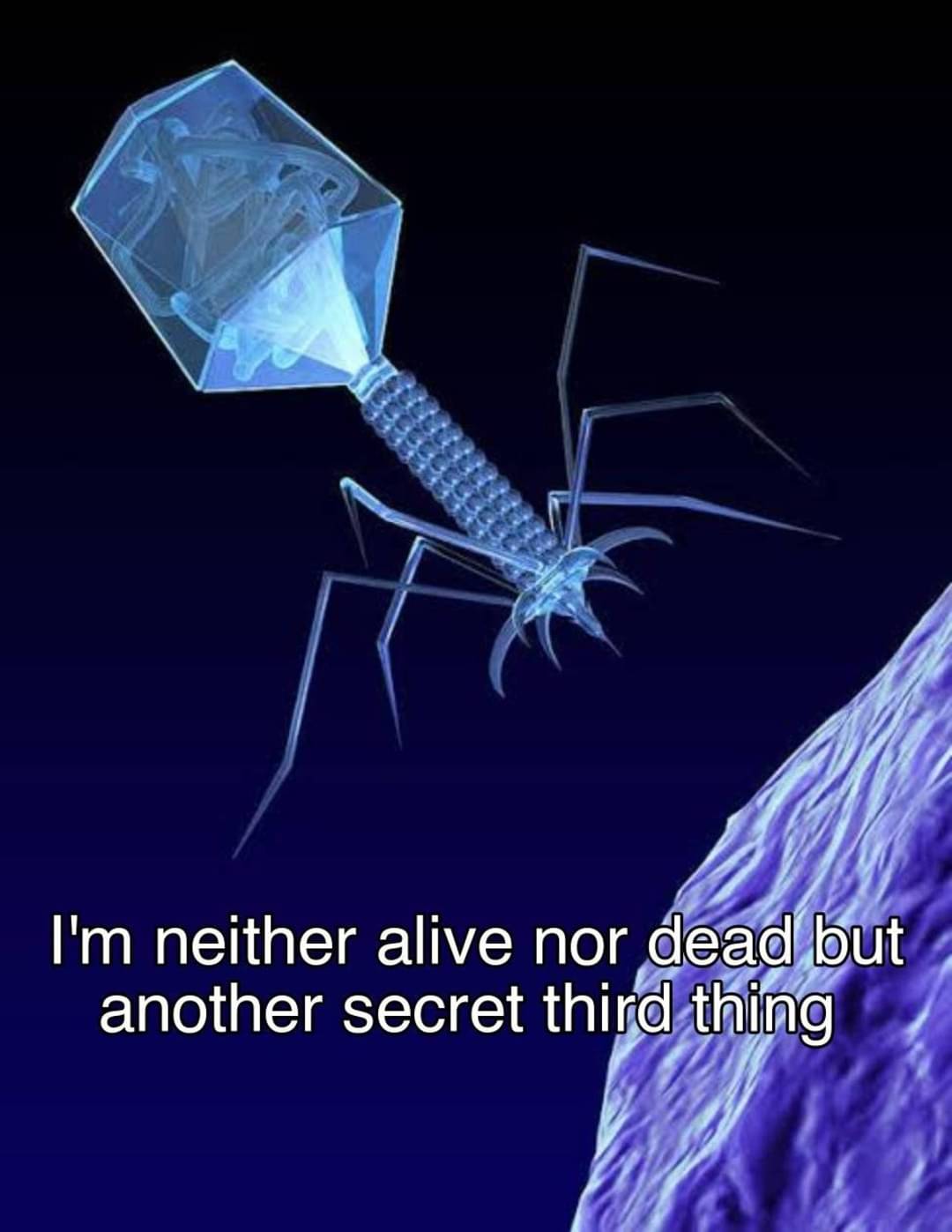this post was submitted on 01 Jun 2024
702 points (99.0% liked)
Science Memes
10842 readers
2342 users here now
Welcome to c/science_memes @ Mander.xyz!
A place for majestic STEMLORD peacocking, as well as memes about the realities of working in a lab.

Rules
- Don't throw mud. Behave like an intellectual and remember the human.
- Keep it rooted (on topic).
- No spam.
- Infographics welcome, get schooled.
Research Committee
Other Mander Communities
Science and Research
Biology and Life Sciences
- [email protected]
- [email protected]
- [email protected]
- [email protected]
- [email protected]
- [email protected]
- [email protected]
- [email protected]
- [email protected]
- [email protected]
- [email protected]
- [email protected]
- [email protected]
- [email protected]
- [email protected]
- [email protected]
- [email protected]
- [email protected]
- [email protected]
- [email protected]
- [email protected]
- [email protected]
- [email protected]
- [email protected]
- !reptiles and [email protected]
Physical Sciences
- [email protected]
- [email protected]
- [email protected]
- [email protected]
- [email protected]
- [email protected]
- [email protected]
- [email protected]
- [email protected]
Humanities and Social Sciences
Practical and Applied Sciences
- !exercise-and [email protected]
- [email protected]
- !self [email protected]
- [email protected]
- [email protected]
- [email protected]
Memes
Miscellaneous
founded 2 years ago
MODERATORS
you are viewing a single comment's thread
view the rest of the comments
view the rest of the comments

Okay, this got me curious. From the wikipedia article on viruses:
Theoretical biologist here. I consider viruses to define the lower edge of what I’d consider “alive.” I similarly consider prions to be “not alive,” but to define a position towards the upper limit of complex, self-reproducing chemistry. There’s some research going on here to better understand how replication reactions (maybe encased in a lipid bubble to keep the reaction free from the environment) may lead to increasing complexity and proto-cells. That’s not what prions are, but the idea is that a property like replication is necessary but not sufficient and to build from what we know regarding the environment and possible chemicals.
I consider a virus to be alive because they rise to the level of complexity and adaptive dynamics I feel should be associated with living systems. I’ll paint with a broad brush here, but they have genes, a division between genotype and phenotype, the populations evolve as part of an ecosystem with all of the associated dynamics of adaptation and speciation, and they have relatively complex structures consisting of multiple distinct elements. “Alive,” to me, shouldn’t be approached as a binary concept - I’m not sure what it conceptually adds to the discussion. Instead, I think it should be approached as a gradient of properties any one of which may be more or less present. I feel the same about intelligence, theory of mind, and animal communication.
The thing to remember when thinking about questions like this is that when science (or history or literature…) is taught as a beginner’s subject (primary and secondary school), it’s often approached in a highly simplified manner - simplified to the point of inaccuracy sometimes. Many instructors will take the approach of having students memorize lists for regurgitation on exams - the seven properties of life, a gene is a length of dna that encodes for a protein, the definition of a species, and so on. I don’t really like that approach, and to be honest I was never any good at it myself.
Thanks for posting this! While my knowledge of biology is quite limited, it's always great to get an informed person's take on an interesting topic.
Interesting, thanks! I'm someone that has been educated on viruses to a Radiolab level, and as such I'd like to hear your take on the idea that viruses used to be more complex organisms, which then evolved to be the simple and efficient form they are now.
Wildlife biologist here, and I have to concur with just about all of this.
I think we generally look at a viruses and consider them alive but just barely. While prions are not because they (proteins) are what is considered one of the building blocks for life. Self replication being one of the major criteria we'd look for. We look at a very macro level of life but our education and work has a strong overlap down here a well.
This is such a well written post! Gets the point id like to make across in a much better way than I could